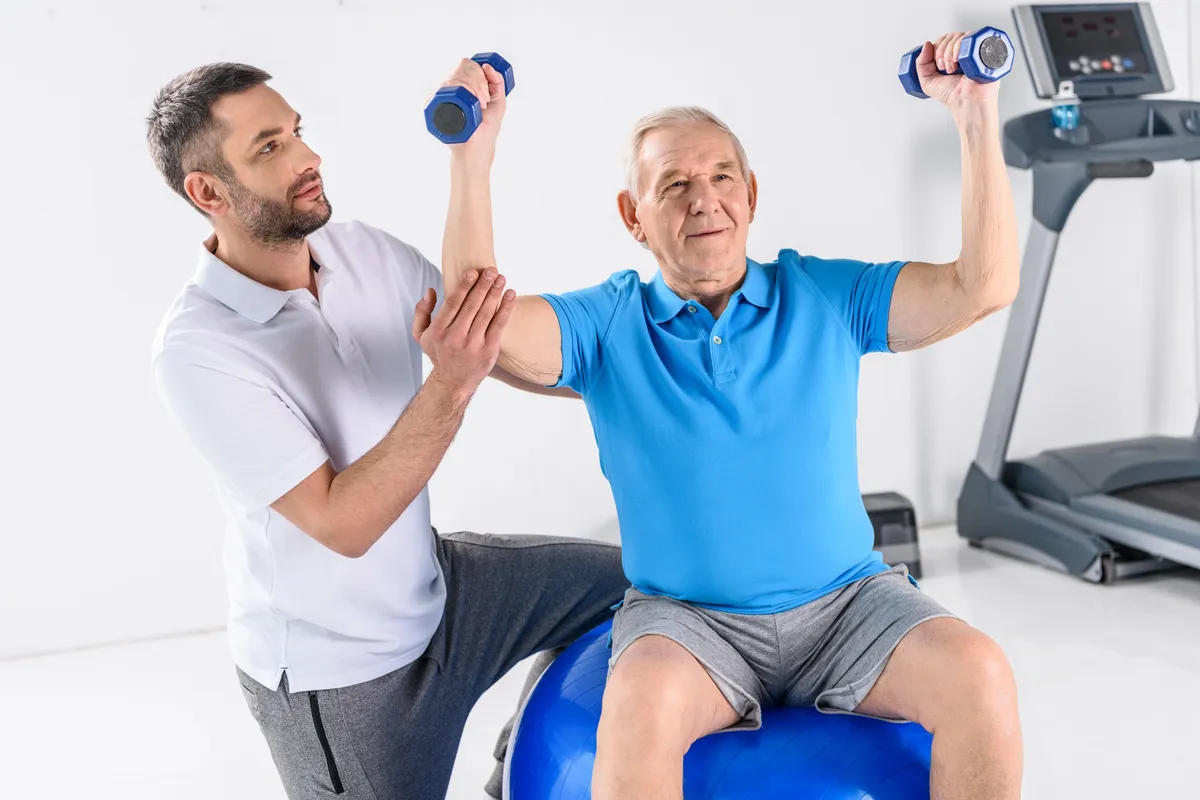Rehabilitation
Various situations can occur in anyone's life that lead to the need for rehabilitation. Illnesses, injuries or advanced surgical procedures can significantly affect an individual's ability to function physically, emotionally and socially. Rehabilitation then becomes a key part of the recovery process, which aims to restore the patient's independence and quality of life as much as possible.
Physical rehabilitation often involves a wide range of interventions that aim to restore mobility and improve muscle function. It also addresses pain reduction and the prevention of long-term disability-related complications. For patients, this can mean intensive therapy sessions, rehabilitation exercises, physical therapy and learning self-help techniques to support a return to full physical function.
Impact of humanisation on patients' motivation to actively participate in the rehabilitation process
Empathetic communication and respect from medical staff play a key role in motivating patients to engage in the rehabilitation process. Patients who feel supported and understood by the medical team are more likely to make efforts to improve their condition. They are more likely to participate regularly in physical therapies, rehabilitation exercises and to comply with their doctor's recommendations, resulting in better rehabilitation outcomes and a faster return to full fitness.
Communication based on empathy and an open, two-way exchange of information between patient and medical staff builds trust and strengthens the sense of control over one's own health. Patients, feeling understood and accepted, are more likely to actively participate in the therapeutic process, which promotes faster recovery and adaptation to health changes.
The humanisation of medicine not only reduces anxiety and stress in patients, but also significantly affects their motivation and commitment to rehabilitation. This approach not only improves the quality of healthcare, but also contributes to better therapeutic outcomes and increases patient satisfaction with the care they receive.
Increasing the effectiveness of rehabilitation through patient involvement
The humanisation of medicine plays a key role in improving the effectiveness of the rehabilitation process by increasing patient motivation and engagement. Patients who experience empathy and respect from the medical team are more likely to participate in physical therapies on a regular basis and to follow treatment recommendations effectively. Regularity and regularity in the implementation of the rehabilitation plan are key to achieving faster recovery and improving overall therapeutic outcomes.
Patients' motivation to actively participate in rehabilitation stems from a sense of commitment and support from the medical staff. Empathetic communication and an open exchange of information help patients to better understand the purpose of therapy and positively influence their psychological preparation for health changes. As a result, patients feel more motivated to make efforts to improve their health, which promotes a faster return to full physical fitness and social integration.
The humanisation of medicine not only reduces anxiety and stress in patients, but also significantly affects the quality of healthcare and its efficiency. With increased patient motivation and involvement in the rehabilitation process, better therapeutic outcomes and satisfaction of both patients and medical staff can be achieved.
Reducing stress and anxiety in the rehabilitation process
The humanisation of medicine plays a key role in reducing stress and anxiety levels in patients during the rehabilitation process. Adequate communication and emotional support from medical staff are essential to build trust and reduce negative emotions associated with illness or injury.
Patients who experience empathy and acceptance from the medical team often feel more psychologically and emotionally comfortable. Knowing that they are being treated individually and with respect helps them to better cope with their health situation and actively participate in the rehabilitation process. Reducing stress and anxiety allows patients to focus on improving their condition, which has a positive impact on the course of therapy and the rehabilitation results achieved.
The humanisation of medicine not only focuses on the physical aspects of treatment, but also on the emotional and psychological needs of patients. Creating a welcoming and supportive atmosphere in medical facilities is crucial for comprehensive patient care and improved overall wellbeing.
Improving quality of life through compassionate medical care
Empathetic and holistic medical care is key to improving patients' overall quality of life. Patients who experience understanding and support from medical staff are more likely to adapt to health changes more quickly and cope better with daily challenges.
Empathetic communication and a personalised approach to the patient's needs not only reduce the stress of illness, but also promote better management of chronic conditions. Patients feel more involved in the treatment and rehabilitation process, which increases their motivation to maintain a healthy lifestyle and comply with treatment recommendations.
Holism in medical care considers not only the physical aspects of treatment, but also the psychosocial and spiritual needs of patients. Through this approach, patients can experience improvements in their overall wellbeing and quality of life, which is crucial for their long-term health and wellbeing.
The humanisation of medicine, through empathetic communication, respect and a holistic approach to patients, significantly influences the rehabilitation process. It increases patients' motivation to actively participate in therapies, reduces stress and anxiety and improves overall quality of life. Thanks to this approach, medical facilities can more effectively support patients to return to full physical and psychosocial function.
